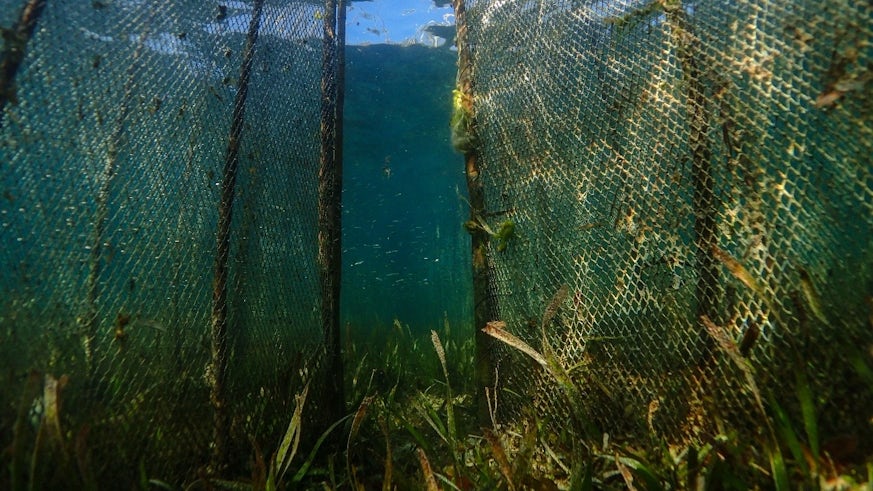Global importance of seagrass-based fishing
22 November 2017

Urgent action is required to stem the loss of the world's seagrass meadows to protect their associated fisheries, according to new research.
Scientists from Cardiff University, Swansea University and Stockholm University examined how seagrass meadows globally support fishing activity.
Providing the first evidence of the world-wide impact of seagrass, the team found that seagrass fishery has subsistence, commercial and recreational value.
“Wherever you find seagrass and people, there is most certainly fishing,” said Dr Leanne Cullen-Unsworth, who is based at Cardiff University’s Sustainable Places Research Institute.
“Our research demonstrates how globally extensive seagrass fisheries are. In developing countries this is of major significance for food supply and livelihoods, where everything can be caught, eaten or sold. In developed countries seagrass fisheries are exploited more for recreational purposes or are highly species specific – for example, clams,” she added.
The team studied seagrass fisheries all around the world including the Philippines, Zanzibar, Indonesia, the Turks & Caicos Islands and locations in the Mediterranean.
They found many similarities in the types of fishing gear used, the animals that are fished and the extent of effort focused in these sensitive habitats.
Dr Cullen-Unsworth said: “Even in small seagrass meadows in Wales, fishers can be seen targeting shrimp at low tide and placing gill nets to catch Bass. By providing a three-dimensional structure in an otherwise barren sea, seagrasses provide the perfect hiding place for fish and invertebrates such as crabs, shrimp and clams. This abundance of animal life is what attracts fishers.”
The researchers argue that measures need to be taken to improve seagrass resilience into the future so that seagrass meadows can continue to support productive fisheries that provide an essential food source.
Dr Culllen-Unsworth added: “Seagrass loss is continuing at an accelerating rate across the globe and evidence is increasing of the prominence of unreported and unmanaged seagrass fisheries. So we need targeted management that aims to maintain the ecosystem services of these valuable habitats.
“In simple terms, environmental policy makers and managers around the world need to acknowledge that seagrass is a common fishing ground, a large diversity of fish and invertebrate species are targeted in seagrass meadows, and seagrass meadows are important for subsistence, recreational and industrial fisheries.”
The paper – Global significance of seagrass fishery activity – is published in the journal Fish and Fisheries.


